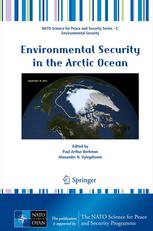

Most ebook files are in PDF format, so you can easily read them using various software such as Foxit Reader or directly on the Google Chrome browser.
Some ebook files are released by publishers in other formats such as .awz, .mobi, .epub, .fb2, etc. You may need to install specific software to read these formats on mobile/PC, such as Calibre.
Please read the tutorial at this link: https://ebookbell.com/faq
We offer FREE conversion to the popular formats you request; however, this may take some time. Therefore, right after payment, please email us, and we will try to provide the service as quickly as possible.
For some exceptional file formats or broken links (if any), please refrain from opening any disputes. Instead, email us first, and we will try to assist within a maximum of 6 hours.
EbookBell Team

0.0
0 reviewsThis seminal book results from a NATO Advanced Research Workshop at the University of Cambridge with Russian co-directorship, enabling the first formal dialogue between NATO and Russia about security issues in the Arctic Ocean. Involving interdisciplinary participation with experts from 17 nations, including all of the Arctic states, this workshop itself reflects progress in Arctic cooperation and collaboration. Interests now are awakening globally to take advantage of extensive energy, shipping, fishing and tourism opportunities in the Arctic Ocean as it is being transformed from a permanent sea-ice cap to a seasonally ice-free sea. This environmental state-change is introducing inherent risks of political, economic and cultural instabilities that are centralized among the Arctic states and indigenous peoples with repercussions globally. Responding with urgency, environmental security is presented as an "integrated approach for assessing and responding to the risks as well as the opportunities generated by an environmental state-change." In this book – diverse perspectives on environmental security in the Arctic Ocean are shared in chapters from high-level diplomats, parliamentarians and government officials of Arctic and non-Arctic states; leaders of Arctic indigenous peoples organizations; international law advisors from Arctic states as well as the United Nations; directors of inter-governmental organizations and non-governmental organizations; managers of multi-national corporations; political scientists, historians and economists; along with Earth system scientists and oceanographers. Building on the “common arctic issues” of “sustainable development and environmental protection” established by the Arctic Council – environmental security offers an holistic approach to assess opportunities and risks as well as develop infrastructure responses with law of the sea as the key “international legal framework” to “promote the peaceful uses” of the Arctic Ocean. With vision for future generations, environmental security is a path to balance national interests and common interests in the Arctic Ocean for the lasting benefit of all.